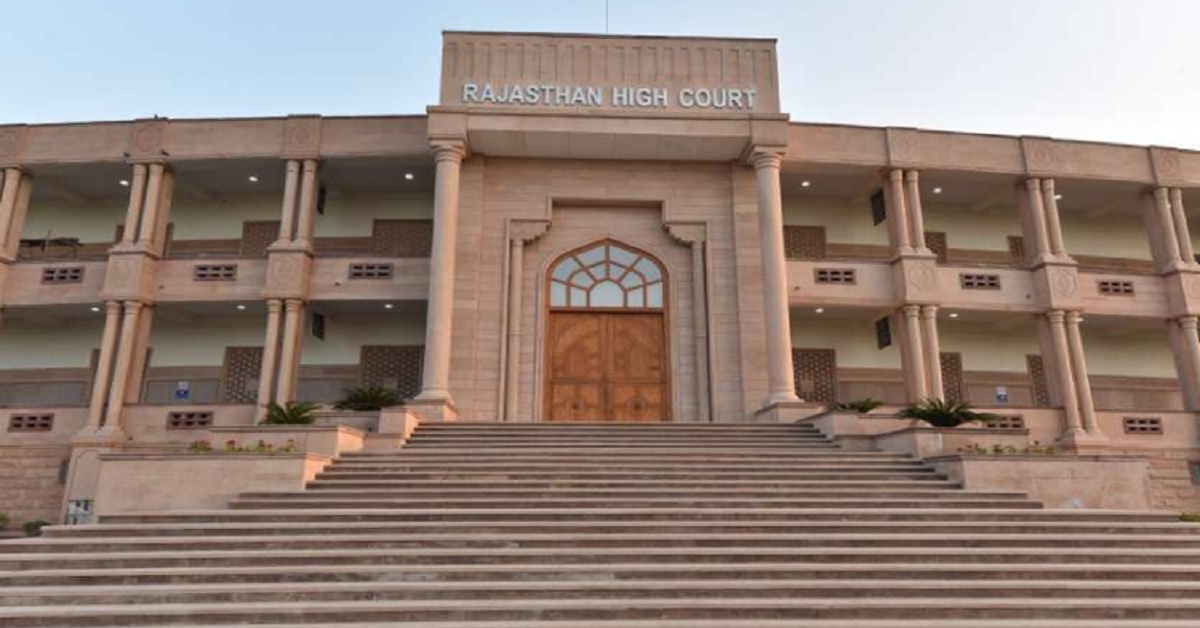On December 16, the Rajasthan High Court in an important ruling observed that Section 152 of the Bharatiya Nyaya Sanhita, is used as a shield for national security and not a sword against legitimate dissent. The bench, led by Justice Arun Monga, was considering a petition filed by a Sikh preacher charged under Section 152 and Section 197, BNS, after he posted a video on Facebook expressing alleged sympathy for Amritpal Singh, a pro-Khalistan leader and MP in judicial custody.
Justice Monga allowed the petition and quashed the impugned FIR No. 239/2024 dated July 6, 2024 lodged at Police Station Purani Abadi, district Ganganagar (Rajasthan) registered against the Tajender Pal Singh and emphasized that this provision should not be misused to stifle legitimate dissent. It clarified that only deliberate actions with malicious intent would fall under its scope, specifically those that threaten India’s sovereignty, unity, and integrity.
The Court stressed that Section 152 should be applied cautiously, ensuring it aligns with the right to freedom of speech and expression. It noted that there must be a clear connection between the speech and the likelihood of rebellion for such provisions to apply. The Court further observed that this provision should act as a shield for national security, not as a weapon to suppress dissent.
Background
In the case, the complainant asserted that Tajender Pal Singh, the petitioner, posed a threat to India’s integrity and sovereignty, which led to the filing of a police complaint. This complaint was subsequently converted into an FIR, which the petitioner sought to challenge. Tajender Pal Singh, who identifies himself as a preacher of the Sikh religion, claimed to be officially appointed by the Sikh Gurudwara Prabandhak Committee, Amritsar, as the coordinator for the Dharam Prachaarak Committee in Rajasthan. However, he contended that the complainant was a proxy planted by a rival from another Gurdwara to misuse state machinery and settle personal scores. The petitioner denied the allegations, arguing that they were baseless and part of a vendetta.
The petitioner filed the Criminal Misc. Petition seeking the quashing of FIR No. 0239/2024, registered on July 6, 2024, at the Purani Abadi Police Station, District Ganganagar, for alleged offenses under Sections 152 and 197(1)(c) of the Bharatiya Nyaya Sanhita, 2023. The complaint alleged that on July 5, 2024, the petitioner posted an audio-video recording on Facebook from Baba Deep Singh Gurudwara, in which he reportedly expressed sympathy for Amritpal Singh. The complainant accused the petitioner of spreading anti-national content and inciting public unrest.
Decision of the High Court
After hearing arguments from both parties, the Court ruled that Section 152 of the BNS must be applied with caution, in alignment with the fundamental right to freedom of speech and expression. The Court emphasized that to invoke this provision, a clear and imminent connection must exist between the speech and the likelihood of rebellion.
The Court also dismissed the charges in the FIR under Section 197, BNS, noting that an expression critical of government actions, without inciting violence or hatred, does not fall under the scope of this section. Section 197, BNS, aims to safeguard national integration by criminalizing actions that promote disharmony, enmity, or hatred. However, the Court clarified that merely the potential of causing disharmony is not enough to establish intent, especially in the absence of concrete evidence.
The Court called for proper judicial oversight and clear guidelines to interpret terms like “disharmony” and “ill-will” to prevent this provision from being misused as a tool for suppressing dissent. It stressed the need for enforcement authorities to exercise restraint to ensure constructive dialogues and political dissent are not stifled.
Regarding the video at the centre of the case, the Court acknowledged that the video, made in Punjabi, could potentially be misunderstood due to the directness and expressive nature of the language. However, it concluded that there was no malice on the part of the speaker. The Court observed that colloquial Punjabi, with its vigor and directness, might unintentionally come across as offensive. For a statement to be criminalized, there must be substantial evidence of malicious intent or public harm, not just subjective offense. Merely perceiving a statement as offensive is insufficient without tangible proof of public repercussions or intent to incite unrest or violence.
“Colloquial Punjabi, with its rich and expressive nature, can invariably come across as offensive, even when no malice or intent to offend is present. This characteristic stems from the inherent directness and vigor of the language, which may sometimes be misunderstood. However, for such expressions to be deemed criminal, there must be demonstrable public repercussions or substantive evidence indicating deliberate malicious intent (mens rea) to commit any public unrest or incite violence. Merely perceiving a statement as offensive is insufficient without a broader context or tangible harm to substantiate the claim” the bench observed.
With regards to the retrospective application of the Sanhita, Justice Monga said that, “In my opinion, the substantive penal provisions of the BNS, 2023 [in this case section 152 and sections 197(1) of the Bhartiya Nyaya Sanhita, 2023] cannot be retrospectively invoked against the petitioner for the so-called criminal acts done or committed before 01.07.2024, the date of it’s coming into force.”
The judgement of Rajasthan High Court dated 16.12.2024 can be read here
Related:
Landmark ruling: SC orders Sedition law to be kept in abeyance

